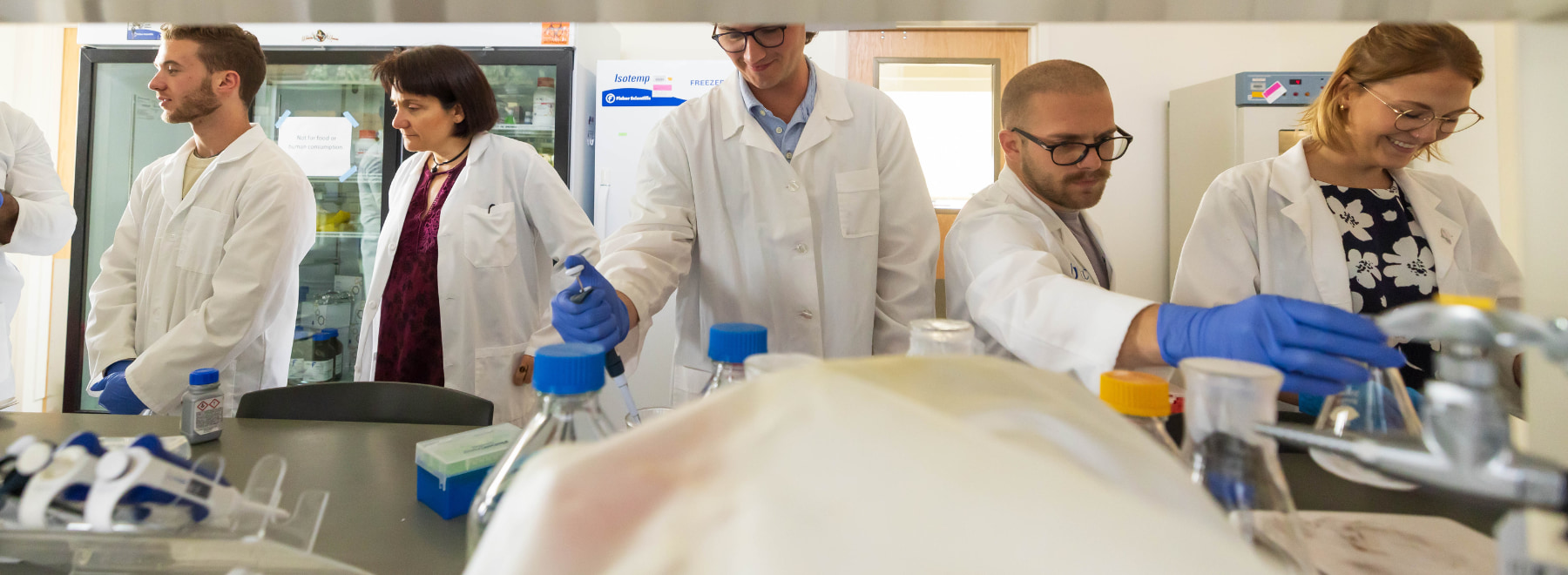
Investigators
Pilot Project Leaders
Pilot Project - Role of monocytes in oncoviral infection and associated cancer
 | Ramona Moles, PhD |
Monocytes are mononuclear phagocytes, which historically have been considered crucial in suppressing tumor growth by recognizing and killing tumor cells. However, the immune system does not eliminate transformed cells in cancer patients. Emerging evidence shows that in vivo monocytes exhibit an immunosuppressive phenotype that promotes cancer development rather than disease progression. Transcriptomic analyses of circulating monocytes isolated from different cancer types revealed alteration in gene expression. However, most pathways identified are not involved in the immunosuppressive phenotype, demonstrating that further studies are needed to fully understand the functional role of monocytes in cancer.
Dr. Moles' project will aim to investigate the role of monocytes in the neoplastic disease induced by the oncogenic virus HTLV-1. Adult T cell leukemia (ATL) is an incurable condition induced by the retrovirus HTLV-1. The main cellular targets of the virus are CD4+. Evidence suggests that the innate response, specifically monocytes, might be involved in HTLV-1 pathogenesis. Monocytes isolated from HTLV-1 infected individuals and ATL patients display functional alterations in their ability to differentiate and release cytokines. Our data demonstrates that HTLV-1 infected cells are resistant to monocyte-mediated engulfment. This evidence shows that the virus targets and manipulates the monocytes' functions; however, its role in HTLV-1 pathogenesis is poorly understood and represents a scientific gap in the field. Our hypothesis is that the oncovirus HTLV-1 reprograms monocytes to favor the progression of infected cells towards leukemia and support immune evasion of transformed cells.
The engulfment mediated by monocytes is a process that can be divided into three steps: phagocyte recognition of the "eat me/don't eat me" signals on the surface of target cells, and the engulfment and degradation of cargo. This proposal aims to study (Aim 1) how HTLV-1-infected cells impair the "don't eat me" signal to escape monocyte recognition, (Aim 2) studying the fate of monocytes following phagocytosis and (Aim 3) characterize the functional phenotype of monocytes in ATL patients.
Pilot Project - Nucleotide metabolism in obesity-associated prostate cancer progression and drug resistance
 | Jawed Siddiqui, PhD |
The major objectives of Dr. Siddiqui’s project are to understand the metabolic reprogramming of prostate cancer in obese microenvironments and to develop a novel therapeutic for prostate cancer patients with an obese phenotype. Prostate cancer (PCa) is one of the leading causes of cancer-related mortalities among men population worldwide. Obesity and associated metabolic complications foster PCa progression through systemic and localized transformation in various tissues. In particular, inflammatory mediators from peri-prostatic white adipose tissue (ppWAT) support PCa proliferation and metastasis. Studies show that higher body mass index (BMI) is associated with increased PCa-related mortality, with obesity grades 1 and 2 linked to 20% and 34% higher mortality rates, respectively.
This project will aim to investigate the metabolic reprogramming of PCa in obese microenvironments and develop a novel therapeutic strategy for PCa patients with obesity. Obese PCa patients exhibit more aggressive disease and higher treatment failure rates, partly due to altered drug pharmacokinetics and metabolic disruptions. Nucleotide metabolism has been linked to obesity and drug resistance, yet its role in obesity-induced PCa progression remains unexplored. We hypothesize that metabolic shift in PCa cells within an obese microenvironment contributes to tumor aggressiveness and treatment resistance.
The successful completion of this study will establish the biomarker for obesity-driven PCa progression. This work has the potential to improve clinical outcomes for obese PCa patients by offering a targeted treatment strategy that leverages FDA-approved drugs with minimal side effects.


